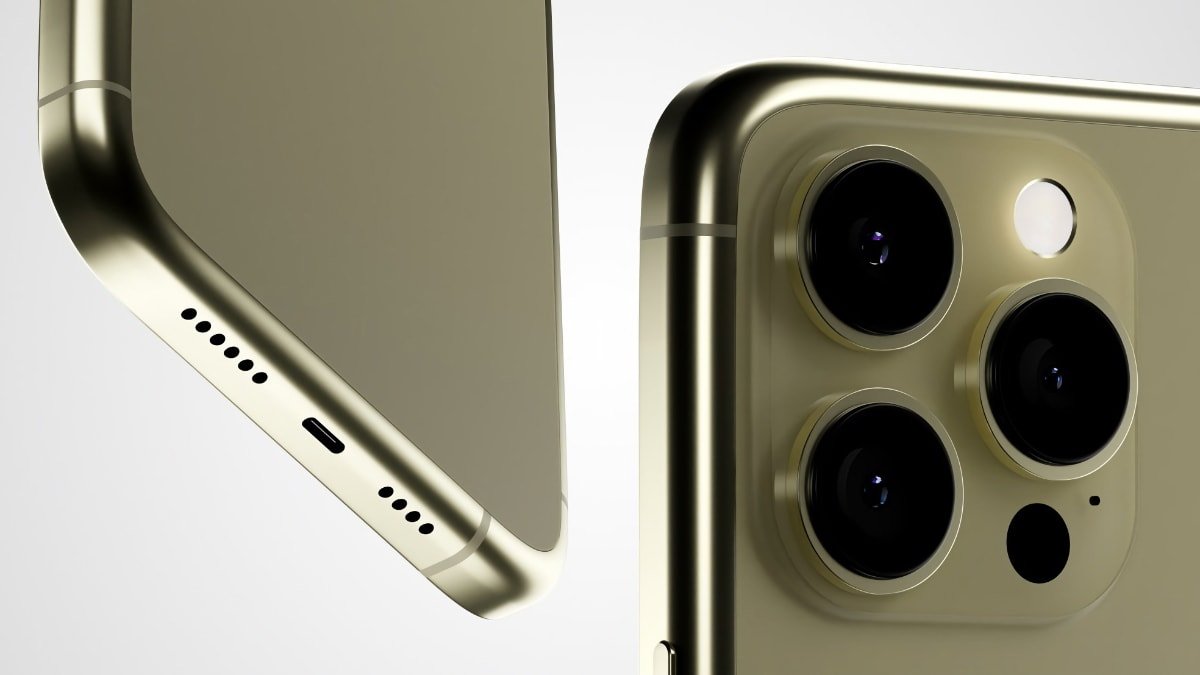The European Union is taking measures to ensure that Apple won't restrict charging and data transfer rates via USB-C for the iPhone 15 and later.
Apple is likely working on adding USB-C accessories to its Made for iPhone (MFi) program that certifies products that meet quality standards. In February, a rumor claimed that Apple would throttle charging and data transfer speeds for non-certified USB-C cables, but the EU is nipping that in the bud.
According to Die Zeit, EU Industry Commissioner Thierry Breton wrote a letter to Apple to say that restrictions that involve charging are unacceptable. If Apple imposes such limitations, Breton says that the EU will prevent iPhones from being sold in member countries.
"Devices that do not meet the requirements for the uniform charger are not approved on the EU market," Breton said. The Commission reportedly reminded Apple of this in March, and Anna Cavazzini, a Green politician who chairs the EU Parliament's Internal Market Committee, accused Apple of attempting to circumvent EU regulations.
Before the end of the year, the EU intends to publish a guide to ensure a "uniform interpretation of the legislation." After 2024, electronic devices such as smartphones, tablets, and others must charge via USB-C.
The EU Council finalized approval of the common charger regulation in October 2022.
According to the proposal, devices will be required to have USB-C ports. Having one standardized connector will enable chargers to be used with multiple devices, thereby enhancing convenience for consumers and significantly reducing electronic waste.
It's unclear whether Apple will include a USB-C port with the iPhone 15 models since it doesn't have to comply with the EU regulation until after 2024. Although the deadline for making changes to local laws to comply with regulations is December 28, 2023, member states are not obligated to enforce these laws until December 28, 2024.
The iPhone 16 might not have it either since that will be released in the fall of 2024, according to Apple's product schedule. However, iPhones must include a USB-C port starting with the iPhone 17, which will be released in 2025.
 Andrew Orr
Andrew Orr







-m.jpg)






 Christine McKee
Christine McKee
 Marko Zivkovic
Marko Zivkovic
 Mike Wuerthele
Mike Wuerthele

 Amber Neely
Amber Neely
 Sponsored Content
Sponsored Content
 Wesley Hilliard
Wesley Hilliard










66 Comments
To be fair to both the EU and Apple, I think Apple wouldn't tempt fate by trying to limit anything in the standard, and the EU is right to make things crystal clear just in case there is any confusion over what is expected.
The EU might as well just be Apple's new design/engineering team. They're doing a great job at stifling innovation by mandating ports and speeds....let's not stop there! What's next, Apple has to make every new iPhone with a minimum 50MP camera? Or, perhaps they will mandate that all new iPhones must be able to run both Android and iOS?
https://www.youtube.com/watch?v=0mj6B4DtNyM
So people at the EU are writing letters to Apple because of irrational paranoia they read on the internet.
This entire rumor is based on a misunderstanding. Apple need to switch to USB-C in a way that maintains backwards compatibility with old Lightning accessories, so yes compatible MFi cables are still needed.
Besides, everyone knows that there are many different kinds of USB-C cable, even if they all have plugs that look the same. Not all offer maximum data and charging speeds. How can people know what a cable can do? Right now they don’t. The USB consortium failed! So there is obviously still a place for MFi type labelling so that consumers know they are buying a cable that is fully capable with iPhone. That’s not the same thing as limiting capable cables. Capable cables will obviously work. They are just providing a way of identifying capable cables, which is what the USB consortium have failed to do.